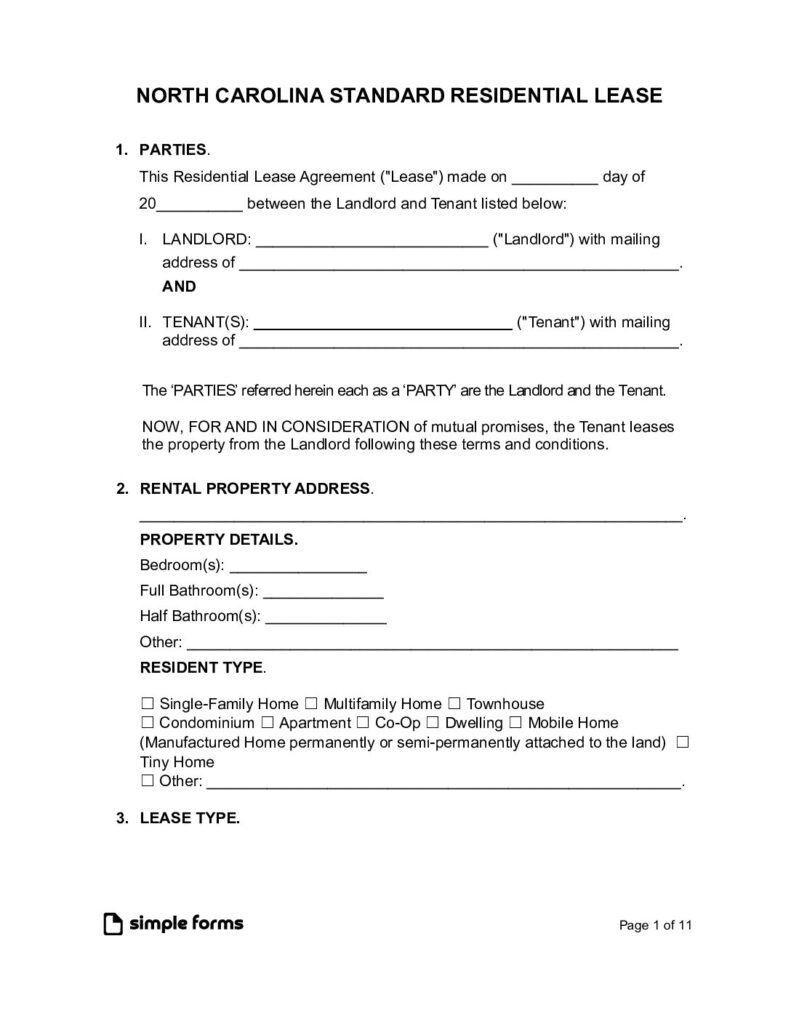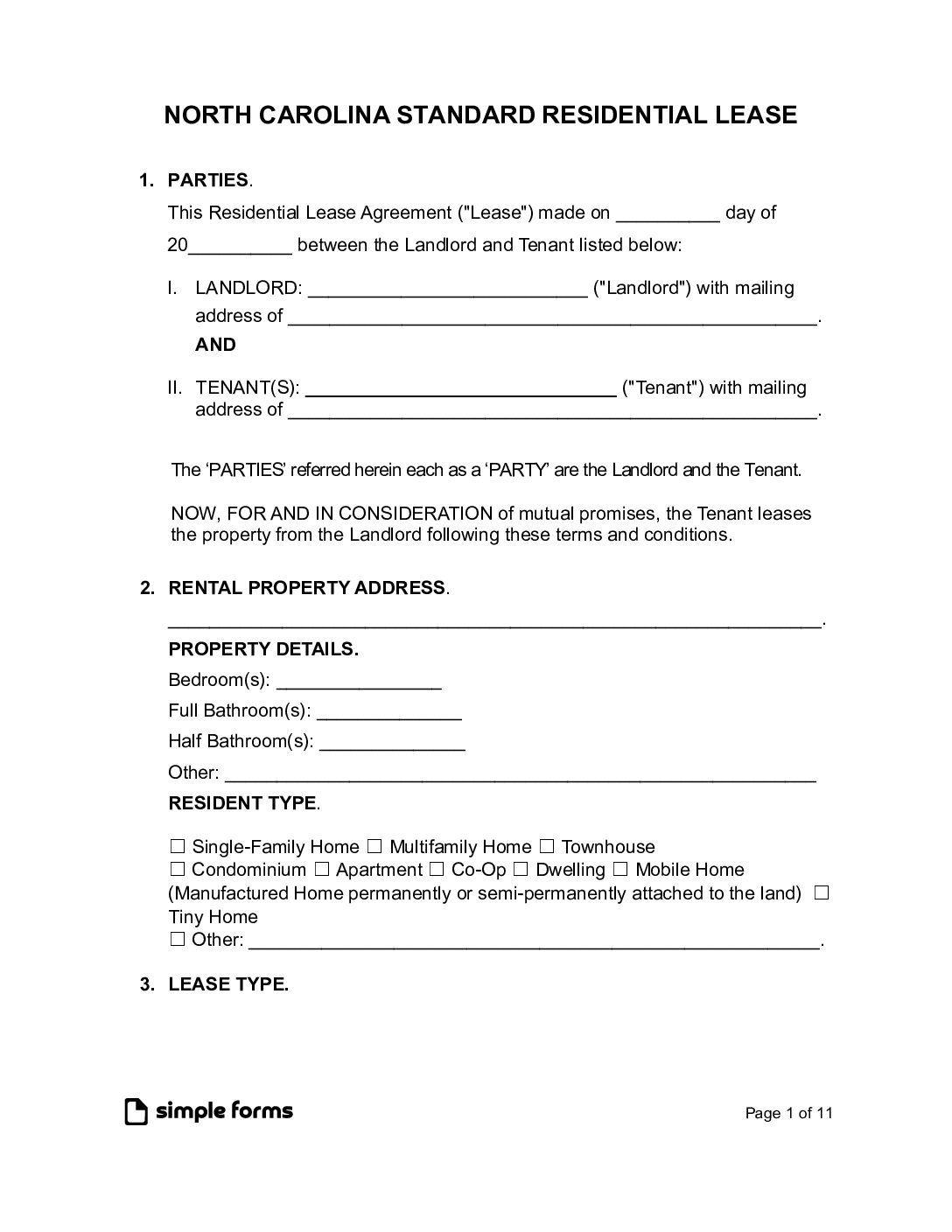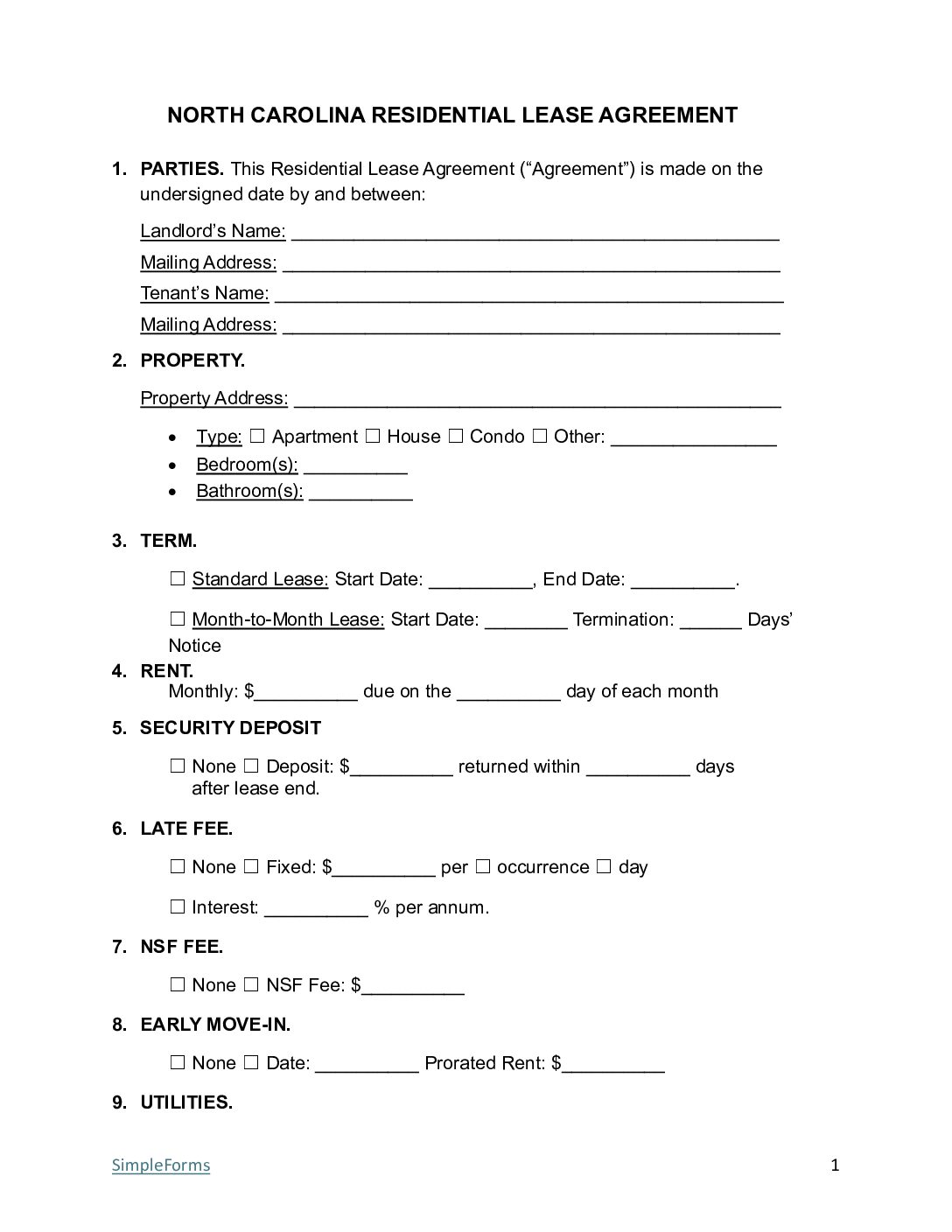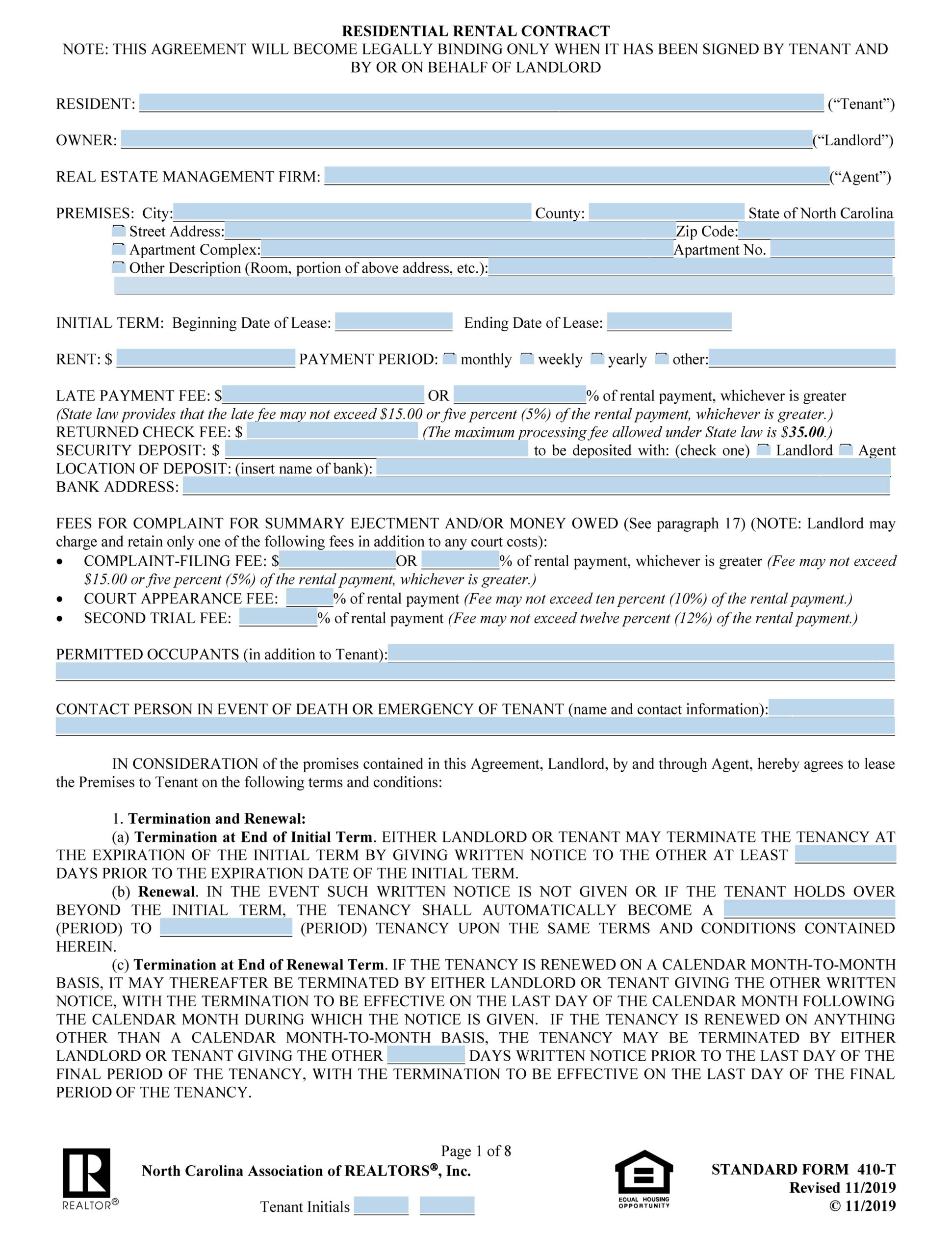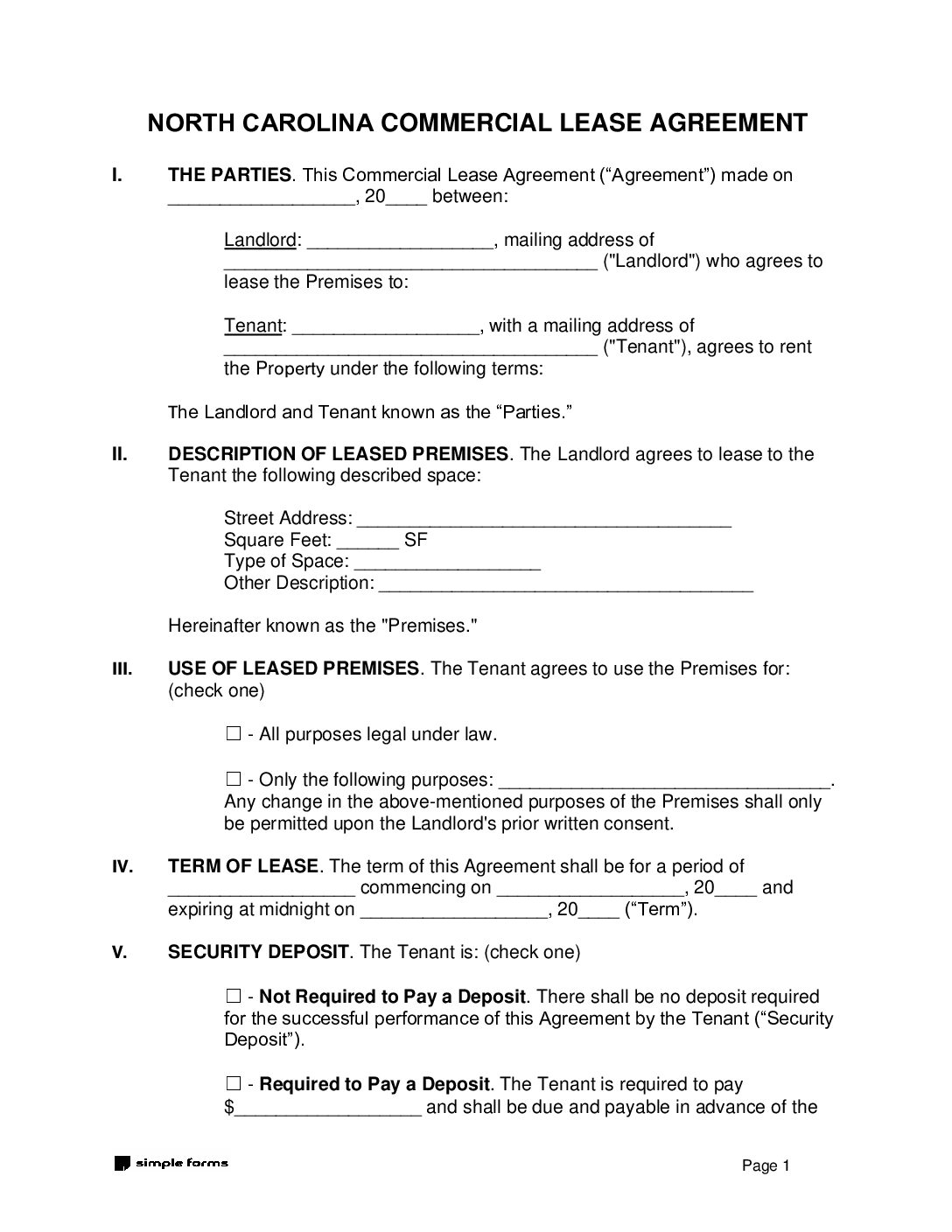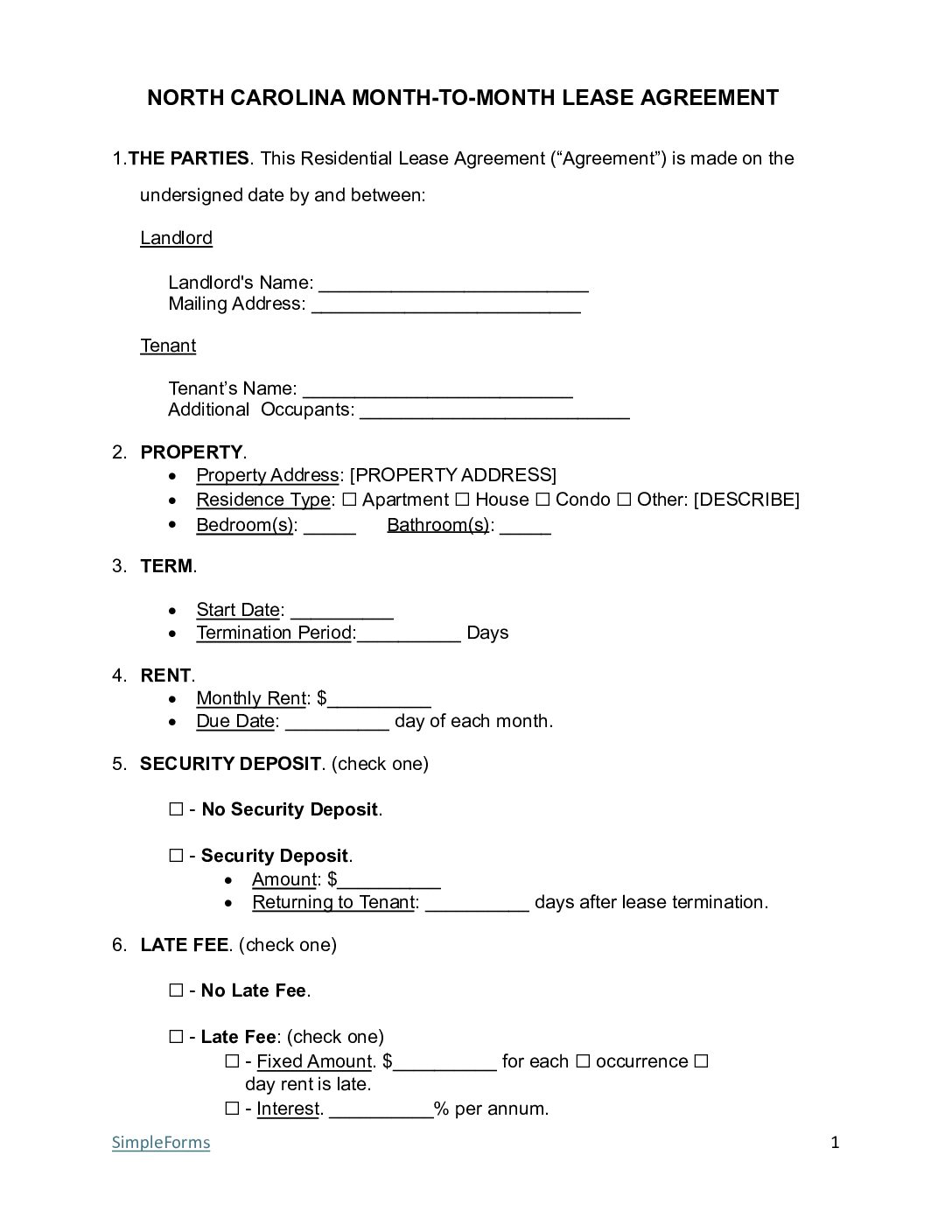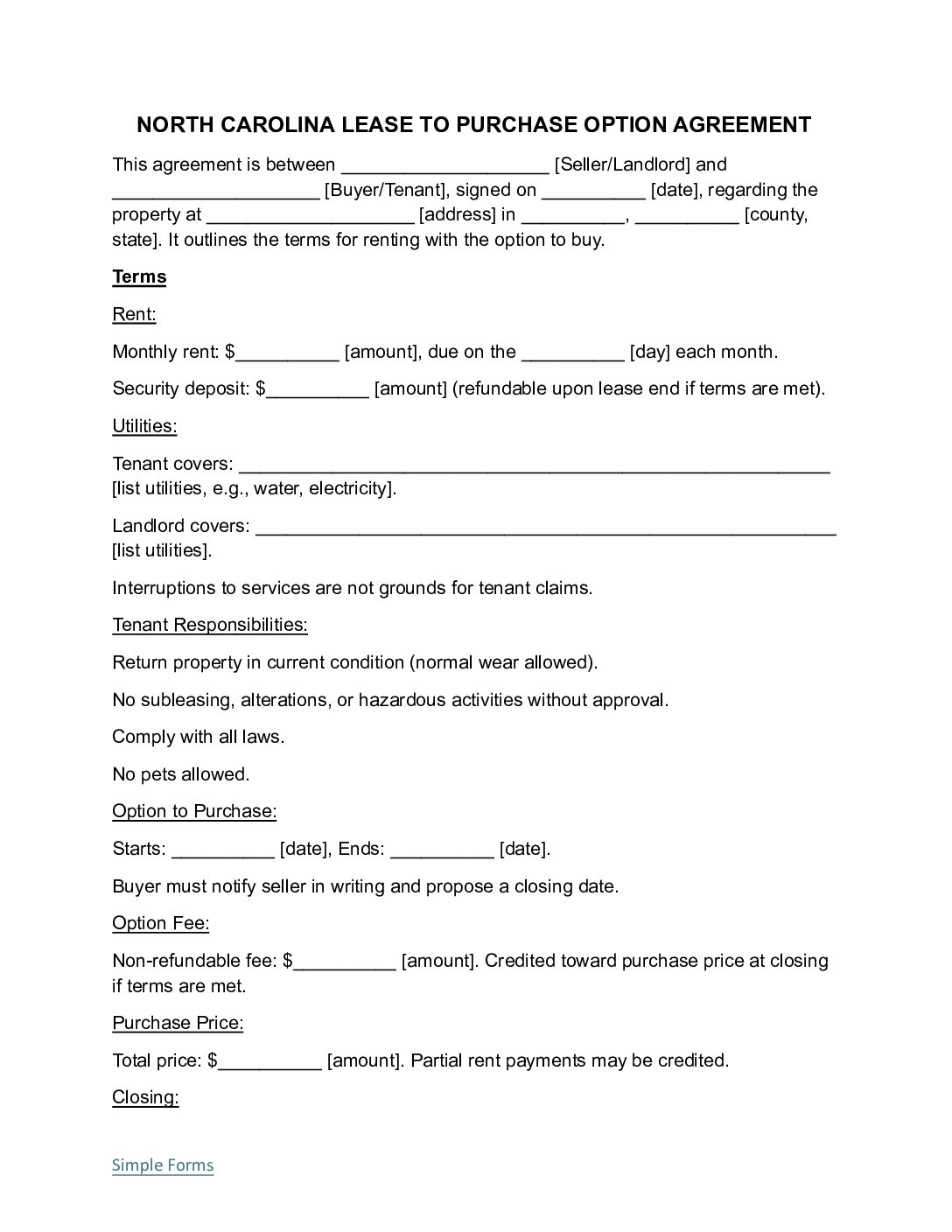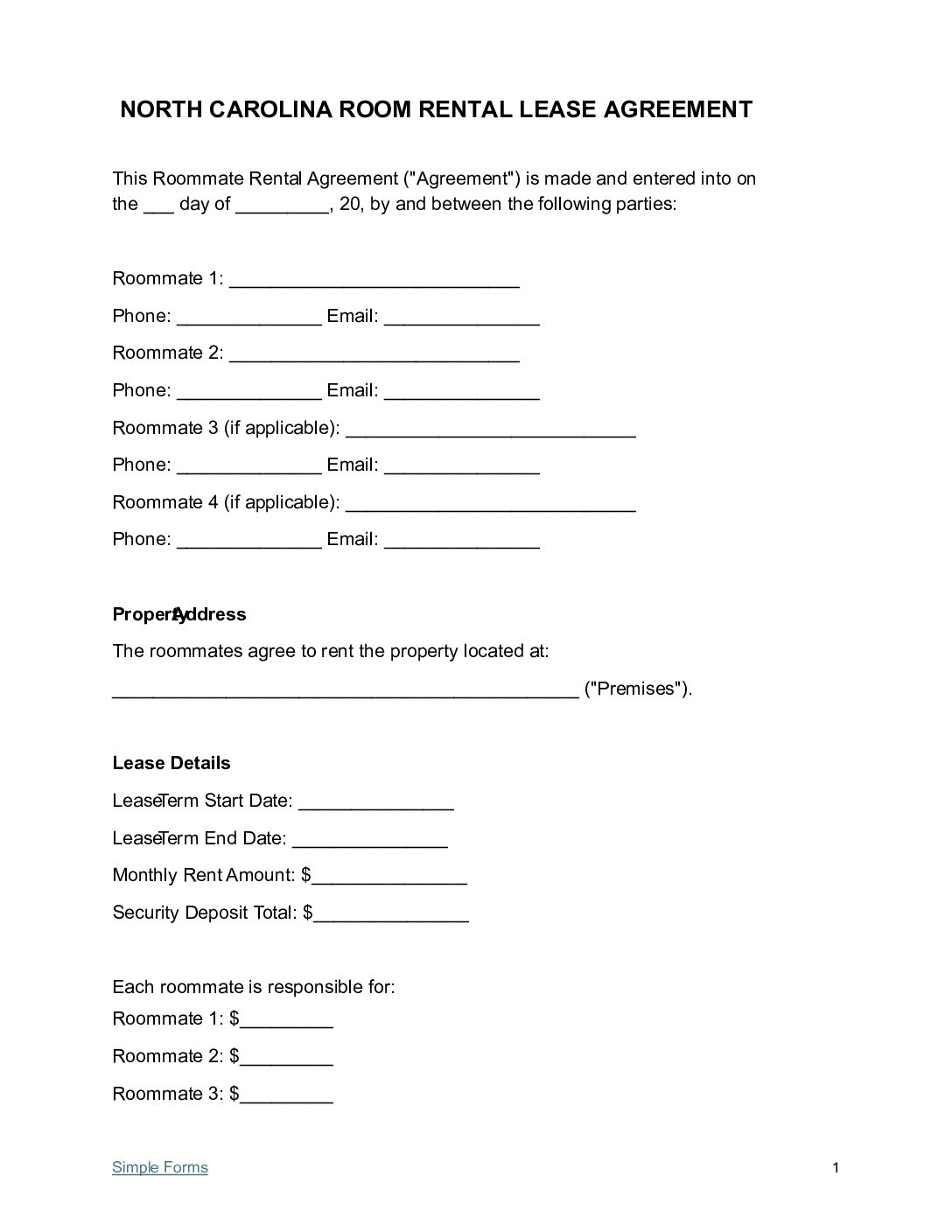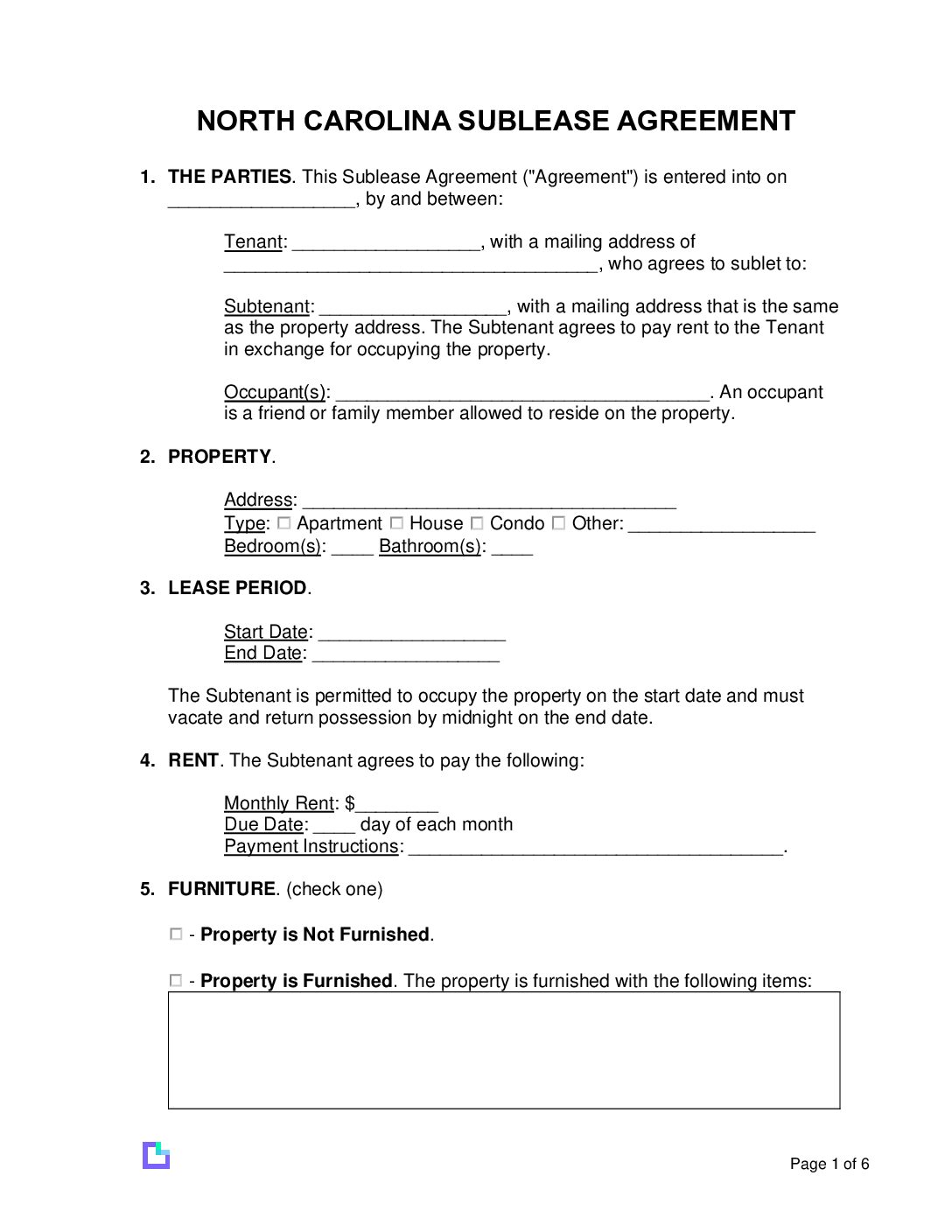By Type
| Residential Lease Agreement – Standard 1-year lease term. Download: PDF | Word (.docx) |
|
| Association of Realtors
Download: PDF | Word (.docx) |
|
| Commercial Lease Agreement – Used for retail spaces, office buildings, warehouses, and industrial facilities. Download: PDF | Word (.docx) |
|
| Month-to-Month Lease Agreement – Tenancy at will with renewals every 30 days. Download: PDF | Word (.docx) |
|
| Rent to Own Lease Agreement – A lease that includes an option for the tenant to purchase the property at a later time. Download: PDF | Word (.docx) |
|
| Roommate Lease Agreement – Shared living arrangements. A binding contract outlining responsibilities and agreements between co-tenants. Download: PDF | Word (.docx) |
|
| Sublease Agreement – Used to Sublet unit with landlords approval. Download: PDF | Word (.docx) |
NC Landlord-Tenant Resources
What the North Carolina rental lease agreement form covers?
This North Carolina Lease Agreement includes North Carolina landlord-tenant laws. This agreement form outlines the following:
- North Carolina Residential Landlord-Tenant Act
- Security Deposit Laws
- Lease Termination
- Landlord’s Access to the Property
- Rent Due Date plus Late Fees
- Required Disclosure Forms
North Carolina Residential Landlord-Tenant Act
Security Deposit Laws
Summary:
- 30 Days – Landlords must return the deposit within 30 days of the lease end date. [1]
- Itemized List – Deductions must be itemized by the landlord and shared with the tenant.
- Maximum – The maximum deposit is one and a half (1.5) months’ rent for month-to-month leases or two (2) months’ rent for longer leases.. [2]
- Interest on Security Deposits – Landlords are not required to pay interest on security deposits.
Lease Termination
Summary: Both landlords and tenants can terminate a lease under the following conditions:
- Landlord’s Ability to Terminate
- 10-day notice for nonpayment of rent.
- Immediate notice for criminal activity.
- Tenant’s Ability to Terminate
- Tenants may terminate for reasons such as uninhabitable conditions after notifying the landlord.
- 30-day notice required for month-to-month leases. [3]
Landlord’s Access to Property
Paying Rent and Late Fees
Required Disclosure Forms
Summary: Landlords must disclosure the following to tenants prior to the move-in date.
-
- Lead-Based Paint Disclosure – Properties built before 1979 require landlords to notify tenants about lead paint hazards.
- Security Deposit Location – Trust account information 30 days after the lease term start date.[6]
